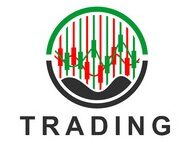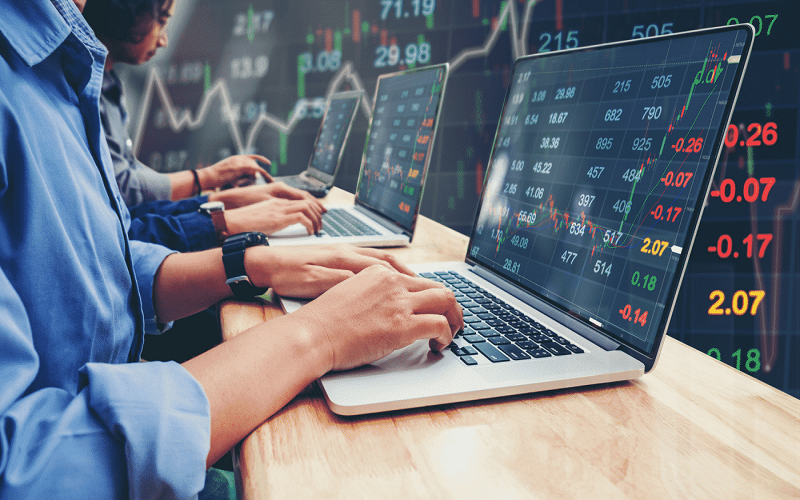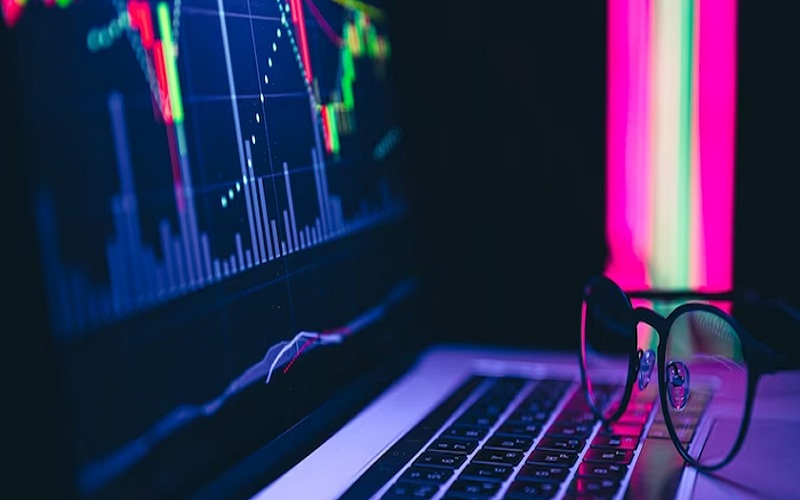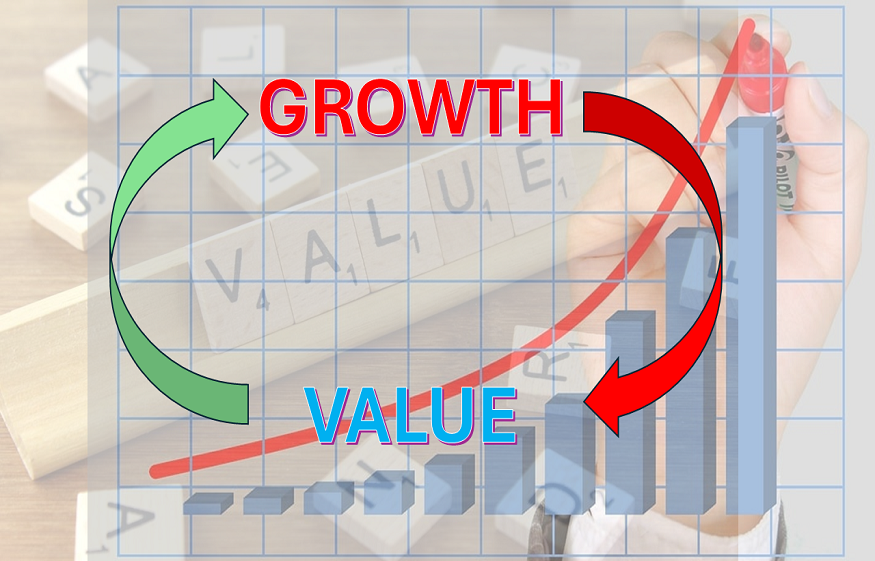Artificial intelligence (AI) systems have had a drastic impact on algorithmic trading of the financial markets that are characteristically oscillating with milliseconds making or breaking fortunes. Offered by the best trading platform, algorithmic trading also referred to as algo-trading or automated trading, constitutes the implementation of computer algorithms rapidly and frequently executing trade. As AI technologies, such as machine learning and Natural Language Processing (NLP) become more prevalent in algorithmic trading, the level of its sophistication is getting greater with unmatched efficiency, speed, and accuracy. This article talks about the influences brought by AI, and how this technology has benefited algorithmic trading.
Algorithmic Trading Evolution.
Algorithmic trading is an old concept; it began in the 1970s when early computerized transactions were devised. Still, algorithmic trading did not come into use in full until the late 1990s and early rounds of the new millennium due to technological advancements coupled with a growing complexity level at stock markets. Originally, the algorithms were very simple and based on rules that carried out trades according to instructions and certain parameters prioritized in advance.
The development of AI represented a new level in the progression history of algorithmic trading. Unlike man-made rule-based algorithms, AI-enabled trading systems are capable of analyzing a staggering number of data points over time and can discern more complex patterns than human programmers would have previously predicted to exist. In addition, they react much faster than any human could as the stock market is very dynamic. Trading is becoming easier with the help of machine learning algorithms where traders can create predictive models to foresee how market trends will go.
The merits of AI in Algorithmic Trading
The integration of AI into algorithmic trading has unlocked a multitude of benefits for market participants:
- Enhanced Decision Making: Trades can leverage AI algorithms to process large datasets and retrieve crucial information which they use for informed decisions. Through the analysis of historical market data, news sentiment info, social media trends, and other features AI-based trading systems determine favorable opportunities in terms of trade alongside specific strategies that should be utilized for optimal efficiency.
- Improved Efficiency: Thanks to AI technology, algorithms may trade faster than the blink of an eye thereby removing all kinds of latency typically associated with manual trading. Such lightning-fast trading capacity allows market participants to take advantage of short-term market windows and make trades at the appropriate time to generate profit while minimizing losses.
- Risk Management: AI algorithms can explore risk factors in real-time and make adjustments on the go to prevent losing money. For risk management, AI-driven trading systems constantly observe market configurations and portfolio efficiency to change position sizes accordingly while implementing the stop-loss mechanism or hedging against volatility.
- Alpha Generation: Alpha can be obtained using AI-powered trading systems that bring unobservable efficiencies in the market by detecting hidden patterns that may not be apparent to human traders. With the support of advanced machine learning methods, like the reinforcement or deep-learning ones for AI algorithms; these can learn over time adapting and improving their performance and net profit.
- Market Analysis and Prediction: AI-based algorithms can capture more data points than human traders, and find patterns that may otherwise be too subtle for lay bettors. The ability to process vast amounts of data derived from numerous sources like historical price movements, economic indicators, and geopolitical events allows AI-based trading systems to make accurate predictions on future market trends. Traders can then predict the direction of prices and make necessary adjustments through their trading strategies to have a competitive advantage over other players.
- Real-time Monitoring and Adaptation: Artificial intelligence-based trading systems can monitor market trends in real-time and react accordingly via automated changes to the strategy. Studying variances in market dynamics involves utilizing AI algorithms to process the latest information through advanced and high-speed algorithms, which give timely buy/sell signals immediately detecting changes like spikes or other trends. This real-time monitoring and adaptation capability ensures that trading strategies remain agile and responsive to changing market conditions, thereby improving overall performance and profitability.
- Reduced Emotion-driven Decision Making: The importance of artificial intelligence in algorithmic trading is that it eliminates the element of emotion from decision-making. Human traders are prone to various cognitive biases and emotion-driven responses which result in erratic trading decisions, and negative implications for their performance. Trading on automatic trading systems that are driven by ordered rules and algorithms which lack the feelings of humankind to there being a trade based purely upon the data analysis needs nothing but an objective. This minimizes the incidences of impulsive or irrational purchasing decisions translating to more predictable and regulated trading strategies.
- Scalability and Consistency: AI-driven trading platforms provide scalability and consistency because they allow one to trade across a diverse set of markets, assets, and timeframes comfortably. In contrast to human traders, who could be constrained by time and cognitive ability; AI algorithms can analyze numerous assets at once and trade across wide possibilities simultaneously with accuracy without regard for the market conditions they would always perform. These scalability and consistency allow the traders to diversify their portfolios in trading, catching opportunities in many market niches, and at once grow yields whilst minimizing total risks.
- Adaptability to Complex Market Dynamics: The financial markets are by design complicated as well as non-linear with a variety of factors that affect it, including the ones that interact. AI-powered trading systems thrive at tackling the intricacies as they can adjust in response to changing markets and shifting trading environments. Leveraging cutting-edge tools such as reinforcement learning and deep learning AI algorithms are capable of analyzing past activities, and learning from each acquired piece of information setting up trading strategies needed at a particular time by responding to relevant data.
In conclusion, algorithmic trading is embracing AI in its infrastructure and underlying systems which involves a transition that transforms financial markets. The advantages of AI are numerous and vary from better decision-making to efficiency, risk management, and alpha generation to name some. Trading brokers derive maximum benefits from market opportunities by utilizing the latest algorithms to make informed decisions effectively, execute trades quickly, and swiftly adapt according to changing trends in the markets. Through AI, trend anticipation is possible, and a high degree of elimination from emotional biases. The supportability ensures scalability, as well as consistency that requires no intellectual working capital of human efforts to interpret all data. With the advancement in AI, there is more innovation to look ahead of us along with democratization, and ethical considerations in finance.





